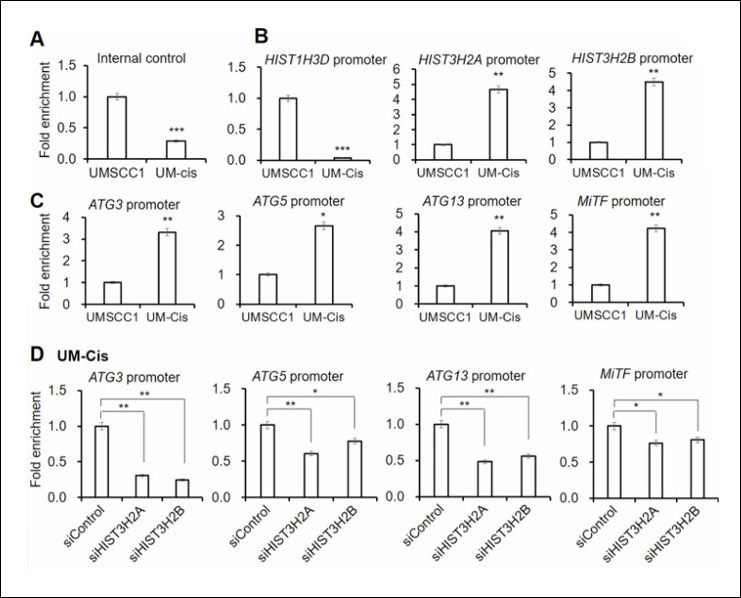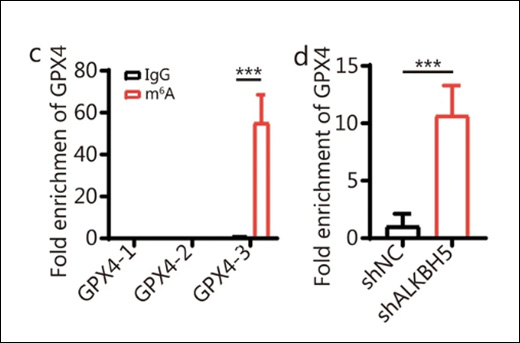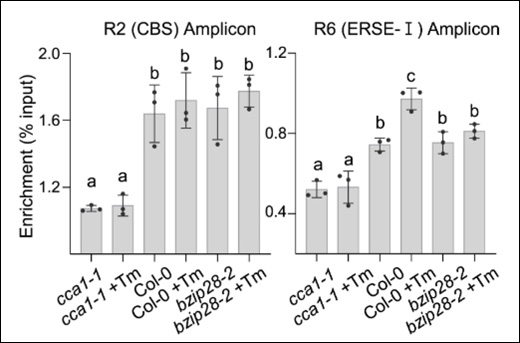Shi X et. al. (October 2024). N6-methyladenosine-mediated upregulation of LNCAROD confers radioresistance in esophageal squamous cell carcinoma through stabilizing PARP1 Shi X et. al. (October 2024).
This study explores how m6A-modified long non-coding RNA LNCAROD contributes to radioresistance in esophageal squamous cell carcinoma (ESCC). The researchers found that LNCAROD, stabilized by m6A reader YTHDC1, prevents PARP1 degradation, enhancing DNA repair and resistance to radiation. Silencing LNCAROD increased radiosensitivity, making it a potential therapeutic target for ESCC.
Products Used: EpiQuik m6A RNA Methylation Quantification Kit (Colorimetric), EpiQuik CUT&RUN m6A RNA Enrichment (MeRIP) Kit
Guan X et. al. (October 2024). CircSSR1 regulates pyroptosis of pulmonary artery smooth muscle cells through parental protein SSR1 mediating endoplasmic reticulum stress Respir Res. 25(1):355.
This study examines how circSSR1 regulates pyroptosis in pulmonary artery smooth muscle cells (PASMCs) through endoplasmic reticulum stress in pulmonary hypertension. Researchers found that circSSR1 promotes translation of its parental gene SSR1 via m6A, triggering ER stress and pyroptosis under hypoxia. Knocking down circSSR1 reduced pyroptosis, suggesting a potential therapeutic target for pulmonary hypertension.
Products Used: N6-methyladenosine (m6A) Polyclonal Antibody
Cui L et. al. (October 2024). N6-methyladenosine modification-tuned lipid metabolism controls skin immune homeostasis via regulating neutrophil chemotaxis Sci Adv. 10(40):eadp5332.
This study investigates how m6A modification influences lipid metabolism and immune balance in the skin. Researchers found that downregulation of m6A and METTL3 in keratinocytes triggers skin inflammation by increasing neutrophil recruitment. Restoring m6A stabilized ELOVL6 mRNA, reducing palmitic acid accumulation and neutrophil chemotaxis, offering a potential therapeutic target for inflammatory skin diseases.
Products Used: EpiQuik m6A RNA Methylation Quantification Kit (Colorimetric)
Zhou H et. al. (October 2024). FTO-mediated SMAD2 m6A modification protects cartilage against Osteoarthritis Exp Mol Med.
This study explores the protective role of FTO-mediated m6A modification in osteoarthritis (OA). Researchers found that decreased FTO levels in OA cartilage led to elevated m6A modification of SMAD2 mRNA, destabilizing it and accelerating disease progression. Enhancing FTO activity to stabilize SMAD2 offers a promising therapeutic approach for OA treatment.
Products Used: EpiQuik m6A RNA Methylation Quantification Kit (Colorimetric)
Taglietti V et. al. (October 2024). Progressive cardiomyopathy with intercalated disc disorganization in a rat model of Becker dystrophy EMBO Rep.
This study developed a rat model of Becker muscular dystrophy (BMD) to investigate disease progression, particularly focusing on cardiomyopathy. BMD rats exhibited moderate muscle damage and progressive cardiac dysfunction linked to disrupted intercalated disc organization and transcriptomic abnormalities. These findings provide insights into BMD-related heart issues and offer a valuable model for exploring potential treatments.
Products Used: TMEM65 Polyclonal Antibody
Ma W et. al. (October 2024). Notch-Driven Cholangiocarcinogenesis Involves the Hippo Pathway Effector TAZ via METTL3-m6A-YTHDF1 Cell Mol Gastroenterol Hepatol. :101417.
This study reveals a novel Notch-METTL3-TAZ signaling pathway involved in cholangiocarcinoma (CCA) development. Notch activation upregulates METTL3, which drives m6A modification of TAZ mRNA, enhancing TAZ protein translation via YTHDF1. Disrupting this pathway reduces TAZ levels and inhibits CCA growth, suggesting potential therapeutic targets for CCA.
Products Used: EpiQuik CUT&RUN m6A RNA Enrichment (MeRIP) Kit




 Cart (0)
Cart (0)













